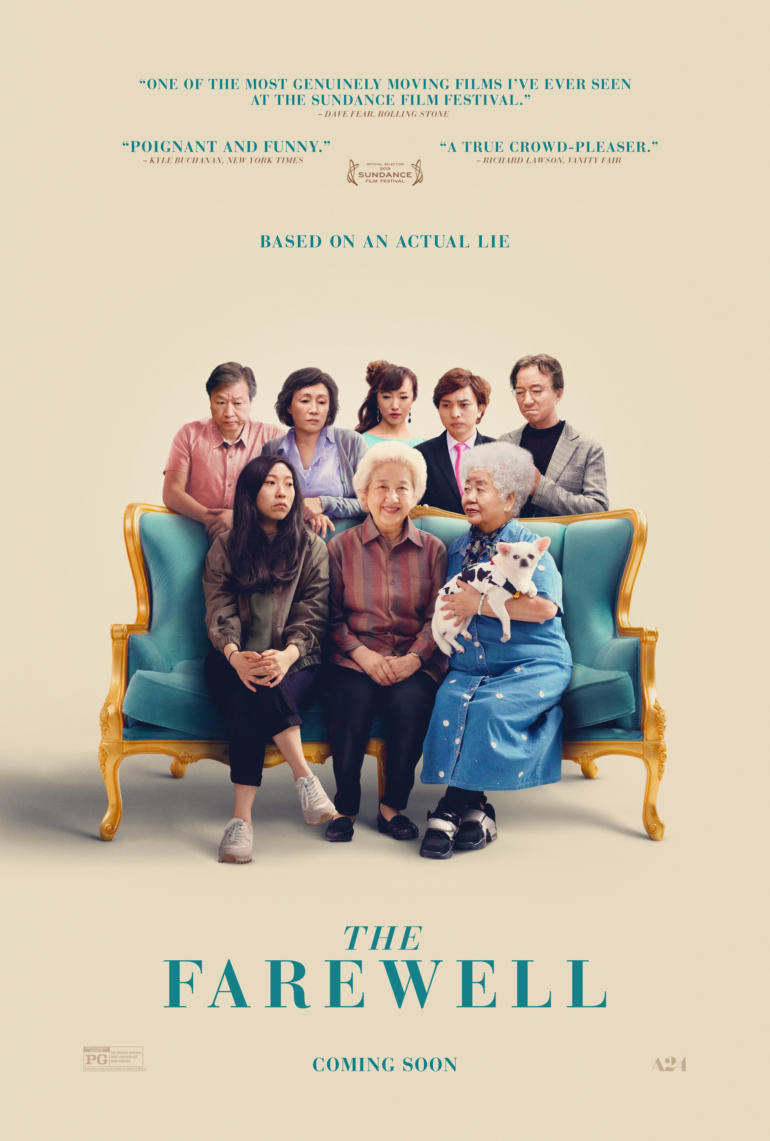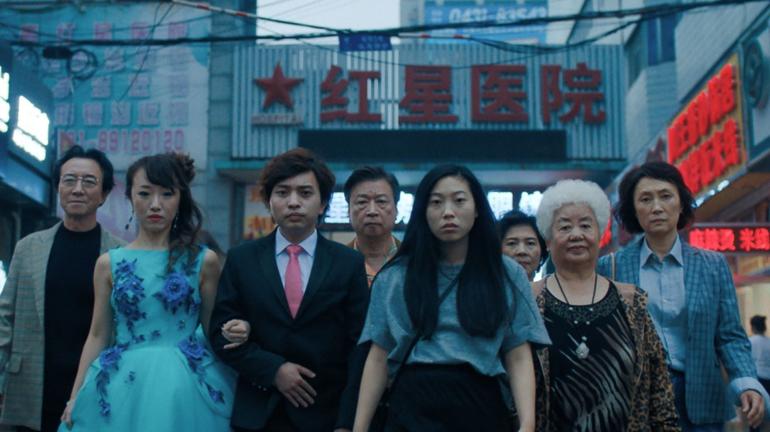Clashing cultures are at the heart of “The Farewell”- whether it be Chinese vs American, the young vs. the elderly, gender inequities, the modern vs. the traditional, rich vs. poor.
But Lulu Wang’s wonderful film works best when it highlights the differences between the West and the East. Its handling of the divide between the two worlds on how to view death is especially illuminating. But “The Farewell” is anything but morbid.
The movie starts with the grand matriarch of the family Nai Nai (which means grandmother in Chinese) being diagnosed with stage four lung cancer. But instead of telling her that she’s dying, her sister decides to lie and tell her that she’s a perfect picture of health. That decision sets everything in motion plot-wise.
Ahmad Coo is a producer and copy editor for the Global Business show on CGTN America. His analysis represents his views alone.
While some viewers, especially from the West, probably view the decision not to tell the grandmother as a violation of her right to know, many families prefer to obfuscate the truth- especially if it concerns someone’s death or dying.
For most Chinese families telling someone they’re dying is considered unnecessarily cruel. In Chinese culture specifically, death is considered a negative life event.
Unlike the Judaeo-Christian tradition, death is not usually seen as another phase of existence (i.e., the afterlife). In some eastern religious traditions, there’s reincarnation (i.e., Buddhism), but that type of resurrection is a reset: you return to earth devoid of memories of your past lives.
Everyone in the family decides that lying to Nai Nai is the best course of action, except for Billi, played by rapper, comedian, and actress Awkwafina (whose real name is Nora Lum). Her character is the perfect foil for “The Farewell”, helping highlight the cultural clash between east and west.
At first, Billi tries to convince her parents to tell Nai Nai the truth about her condition. But Billi’s filial piety prevails and she decides to go along with the lie. But it’s not only her. The whole extended family is complicit.
In fact everyone is using the pretext of a wedding in the family to travel to China, so they can ostensibly participate in the festivities. But they’re all visiting to bid Nai Nai a final farewell.
Again, for most Westerners perpetuating such a bald-faced lie, especially if told to a beloved family member is unforgivable. But in most Asian societies, telling someone the truth isn’t necessarily in everyone’s best interest. For Nai Nai’s family, there are good and bad lies.
For them, lying to Nai Nai about her health is a good lie, because it helps maintain harmony and avoids the stress and the unavoidable grief that comes with a loved one who is terminally ill. Having a harmonious family is a priority for Asians. Most of us don’t like drama (unless you’re Filipino like yours truly, but I’ll save that for another review).
Billi is reminded repeatedly by her relatives that in Asia, people don’t “own their lives”. They have to keep the whole family in mind, again stressing the importance of family or the group over the individual.

Keeping familial harmony exacts a tremendous individual cost, and this is another point of difference between Asian and Western cultures. Since preserving the family unit is paramount, personal sacrifice is seen as a desirable virtue. It’s something that’s held Nai Nai’s family together.
But don’t mistake the tone of this review as representative of the overall mood of the film. It’s not overly mournful or sad, though there are definite tearjerker moments. “The Farewell” is surprisingly funny and it doesn’t try to present a Chinese Mainland culture that’s easily digestible by Western audiences.
Lulu Wang doesn’t try to present all of China as a hyper-developed and overbuilt megalopolis. In fact, there’s very little of that. What you do see onscreen is a country that’s still deeply in the midst of developing. There is very little of the Asian flash and glitz that you see in other Hollywood movies (ie Crazy Rich Asians).
But the biggest surprise of the movie is Awkwafina’s performance. Before this film, I saw her solely as an over-the-top Asian American comedian very much in the mold of a Ken Jeong. In all of her films, she’s played an archetype goof who’s usually the butt of the joke or the one who delivers the killer punchline.
Lulu Wang strips all of that from Akwafina’s repertoire for “The Farewell”, and she turns into a serious actress with real dramatic chops. Not to take anything away from Shuzhen Zhao’s magnificent performance as the family’s matriarch, but the film wouldn’t have been as excellent without Awkwafina’s soulful take on Billi.
Billi embodies the cognitive dissonance that sometimes comes with being a person who exists in both worlds. She’s a third-culture kid who was born abroad but moved to the U.S. as an infant. She’s a hybrid of an individualistic American and a dutiful Chinese daughter.
Though Billi can slip in and out of either modes effortlessly, there were many times during the film where she found herself not belonging in either world and looking a little lost. Watching her onscreen, the loneliness she displays is nearly palpable, almost like being in limbo.
That feeling of isolation is even more pronounced in the final scenes of the movie, where Billi, her parents and Nai Nai leave things unsaid, everyone trying to put up a brave face as they make their way back to their respective homes.
But those facades finally crumble away with Lulu Wang’s camera slowly moving towards and focusing on their faces in the final few moments of “The Farewell”. One by one she reveals the raw sadness and devastation everyone had been hiding away, emotions that are wholly universal in the face of an imminent death of a loved one, regardless of where you’re from.
 CGTN America
CGTN America
 (L-R) Han Chen, Aoi Mizuhara, Yongbo Jiang, Tzi Ma, Awkwafina, Hong Lu, and Diana Lin Credit: A24 Films
(L-R) Han Chen, Aoi Mizuhara, Yongbo Jiang, Tzi Ma, Awkwafina, Hong Lu, and Diana Lin Credit: A24 Films

